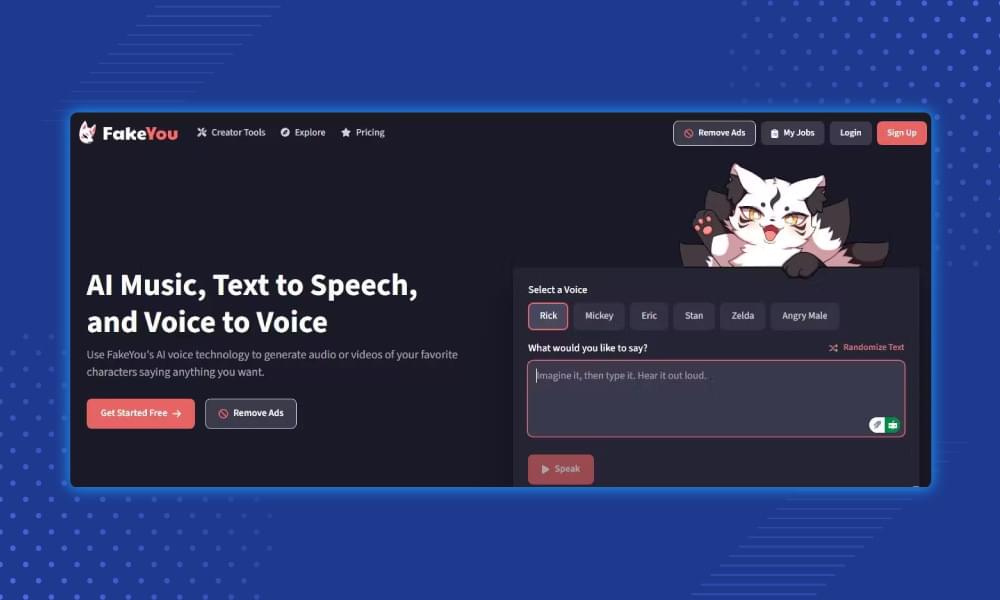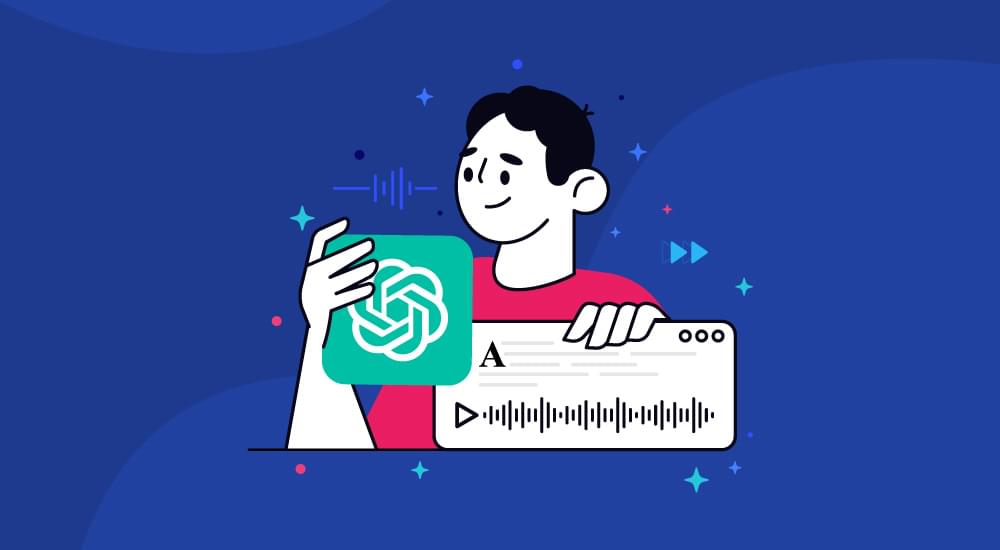text to speech tutorials
The Rise of Text To Speech Celebrity Voices in 2025
Imagine President Trump reading you a bedtime story. Would be fun inni? 🙂
Surely, you are familiar with text to speech (TTS) celebrity voice technology.
Although the core purpose of this technology is to help individuals with disabilities, it has now transformed into a booming industry. It wouldn’t be wrong to say that Stephen Hawking was one of the first widely recognized figures to utilize text to speech technology extensively. His use of a TTS system to communicate made the technology iconic and useful for individuals with speech impairments. However, his implementation was focused on accessibility rather than the kind of entertainment or engagement-driven applications we see today with celebrity voices in AI-generated TTS.
Fast forward to 2025, and text to speech (TTS) technology is raised to a new level with the introduction of celebrity voices. This changed not just the face of entertainment but even the media, education, and, accessibility.
Table of Contents
- What is AI text to speech technology?
- Uses and benefits of Celebrity Text to speech
- Best platforms for celebrity text to speech voices
- What are the ethical challenges in celebrity voice TTS?
- How is TTS celebrity voice transforming content creation and consumption?
- How to make a celebrity AI voice generator?
- Conclusion
- FAQs
Text to speech (TTS) technology was created in 1968 as a simple accessibility tool. But, it has now evolved into such fun innovation and has brought the voices of iconic celebrities into our daily lives. Gone are the days when TTS systems were limited to robotic and monotonous voices. The AI backed text to speech celebrity voices free technology has started a new era of more personalized interactions. From hearing your favorite actor wishing you a birthday to reading a book with them, the possibilities are endless.
What is AI text to speech technology?
Text to speech technology enables AI systems to replicate a person’s unique vocal characteristics, like their tone, pitch, and rhythm, with uncanny accuracy. The magic behind AI text to speech celebrity voice creation lies in deep learning and neural networks. The algorithms of text to speech technology even understand and mimic how an emotion is expressed.
Training these AI models requires extensive datasets to train from. This allows them to learn the intricacies of individual voices. And what datasets could be more abundant and easily accessible than those of celebrities? Using these datasets, AI powered text to speech celebrity voices are now available via many software and apps.
Related: What is TTS
Uses and benefits of Celebrity Text to speech
Celebrity text to speech technology uses the voices of famous personalities to create unique audio experiences. Through its many applications, this technology keeps its users engaged and entertained at the same time.
Here are several unique and impactful use cases for this technology:
Educational Content
Using celebrity voices in educational content can make learning so much fun for students of all ages. This is particularly true for Gen Z and Gen Alpha, who have been raised in an era dominated by social media and celebrity culture. Research indicates that these generations exhibit shorter attention spans, with Gen Z losing active attention to ads after just 1.3 seconds—the least time among all age groups. So, the educational material with this technology can be more captivating and motivating. Gen Z or Gen Alpha would instantly get the excitement I’m talking about if Mr. Beast narrated all of their science lessons. 😀
Narration and Audiobooks
A Statista report says that audiobooks are among the fastest-growing segments in digital publishing. Celebrity voices have transformed the audiobook industry. Apps like ElevenLabs let users listen to various texts, including PDFs, articles, and ePub files, narrated in these distinctive voices. The app supports multiple languages. TTS celebrity voice-free applications have made listening to books more engaging, especially if the celebrity’s voice adds to the thematic elements of the story.
Marketing and Advertising Campaigns
Big marketing brands are using text to speech with celebrity voices to create attention-grabbing commercials and promotional content. A recent study by Forbes highlights that ads featuring celebrity voices see a 20% higher engagement rate compared to traditional ones. This is because, psychologically, a marketing campaign in your favorite celebrity’s voice will always be more appealing and credible to you.
Personalized Greetings and Messages
You can now receive customized voice messages from your favorite celebrities for your special occasions. Imagine receiving a birthday wish in the voice of Keanu Reeves—it’s exciting, memorable, and personal. Platforms like Cameo are providing AI-enhanced options to make such experiences even more accessible.
Virtual Assistants and Chatbots
Virtual assistants like Alexa or Google Assistant can function in celebrity voices. Amazon Alexa offers celebrity voice options, such as Samuel L. Jackson and Shaquille O’Neal, and Google Assistant has celebrity voice options, like John Legend, for specific responses and tasks. With this technology in VA and Chatbots, the celebrity charm increases brand identity and creates an emotional connection with users.
What are the ethical challenges in celebrity voice TTS?
The increasing usage of text to speech celebrity voices brings ethical challenges. Celebrity voice consent, copyright, and misuse are the emerging challenges of this technology. Unauthorized celebrity’s voice generation can cause legal disputes and reputation damage. This can also lead to debates over ownership and digital rights.
The biggest potential risks include misuse of celebrity voice. Let’s say they are spreading misinformation through their fake voice clips. This could seriously damage public trust in the news and the celebrity.
Measures like mandatory disclosure and penalties for unauthorized use are being followed, and advanced tools like watermarking and AI detection are being used to avoid such issues.
Collaboration among developers, legal experts, and ethicists is essential to create a balanced framework that ensures ethical usage while fostering innovation.
How is TTS celebrity voice transforming content creation and consumption?
Text to speech with celebrity voices generation is transforming the way content is created and consumed these days. Personalized voiceovers are one thing but having them in your favourite celebrity’s voice has a whole different vibe. Understanding this vibe, companies are benefitting from more user engagement to their content. And audience feels a deeper connection to the content they consume.
Moreover, TTS technology is enhancing accessibility, making content more inclusive for individuals with visual impairments or learning disabilities. Audiobooks, educational material, and even social media captions are now more accessible. This way content creators can optimize content readability and ensure that no one is left out of the digital consumption and conversation.
Best platforms for celebrity text to speech voices
Voxal Voice Changer
Voxal Voice Changer is an AI celebrity voice generator that lets you create high-quality speech and fun voice effects. From gaming to recording, Voxal enables real-time voice changing with a variety of preset voices, including those mimicking famous characters and celebrities. Just choose your voice, type your text, and Voxal will generate the audio. You can easily modify the pitch and tone for added personalization. Though Voxal’s basic version is free, more advanced features, including the ability to create custom voices and additional voice options, are available with a premium plan starting at $15.99 for a one-time purchase.

FakeYou
FakeYou is another simple text to speech AI celebrity voice generator that uses text and custom voices to create high-quality yet fun speech. It offers the voices of famous personalities and fictional characters. You can use FakeYou for everything from creating viral memes to making videos more engaging.
Using FakeYou is fairly simple. Choose your desired voice, type your text, and let the tool generate the audio for you. The platform allows you to download the generated sound so you can add it to your projects later. FakeYou has a community-driven approach, with users contributing new voices to its ever-growing library. The TTS function is free, but advanced features and premium voices are available for a subscription starting at $5/month.

Resemble.AI
Resemble.AI is an AI text-to-speech celebrity voice tool for creating custom text-to-speech voices. It specializes in voice cloning, allowing you to replicate celebrity-like voices for various applications. It’s widely used for creating voiceovers, virtual assistants, and interactive experiences. Resemble.AI has a growing library of voices and allows users to upload their own for cloning. While the tool offers some features for free, advanced options, including premium voices and API access, come with a paid plan starting at $19/month.

Murf AI
Murf AI is another AI-backed text to speech celebrity voice generator platform. It is designed to generate lifelike voiceovers with customizable speech. Whether you’re creating automated podcasts, video narrations, or presentations, Murf AI provides a good range of voices that closely resemble celebrities and famous figures. The tool also offers advanced features, such as fine-tuning pitch, tone, and speed. While the free trial lets you test the platform, premium features, including access to additional voices, are available for a subscription starting at $13.99/month.

WebsiteVoice
WebsiteVoice is an advanced AI text-to-speech software that transforms written content into lifelike, natural audio, enhancing accessibility and audience engagement. Supporting multiple languages and offering customizable voice options, WebsiteVoice enables businesses, educators, and content creators to effortlessly convert blogs, articles, and other digital content into professional-grade narrations. Whether you’re looking to improve accessibility, captivate audiences, or expand your content’s reach, WebsiteVoice provides a seamless solution to turn text into impactful, human-like audio experiences.
How to make a celebrity AI voice generator?
Creating a celebrity AI voice generator involves collecting high-quality audio data of the celebrity. Then, transcribing it and training advanced text to speech (TTS) models like Tacotron 2 or WaveNet. The model learns to mimic the celebrity’s voice, tone, and style, with optional features like emotion representation etc.
Once trained, the generator can be deployed on platforms for public use, supported by a user-friendly interface and hosted on scalable cloud systems. To ensure ethical use, complying with copyright laws, obtaining consent, and taking other necessary cautions are important.
Conclusion
2025 will be a remarkable period where AI celebrity voices will be widely available. With the ongoing development of AI and its impact in our world, it is evident that the use of TTS integrated with celebrity voices is not hype. Instead it is a transformative shift that is being accomplished.
FAQs
What are text to speech (TTS) celebrity voices, and how do they work?
TTS celebrity voices are computer / AI-generated voices that replicate the speech patterns of popular personalities, such as actors, musicians, or influencers. These voices are produced using machine learning models trained on vast audio data from the celebrity’s public appearances. The AI then mimics their tone, accent, and speaking style to generate speech from text input. These voices can be used for various purposes, from content creation to entertainment.
Are celebrity voice TTS tools ethical to use?
While TTS tools offer creative possibilities, their ethical use depends on consent and copyright. Using a celebrity’s voice without their permission could infringe on intellectual property rights. Many platforms ensure that voices are licensed or offer the option for creators to use their own custom models. Always check the terms of service and licensing before using celebrity voices in any project, especially for commercial purposes.
How accurate are celebrity voices generated by TTS technology?
The accuracy of celebrity voices generated by TTS technology has improved significantly in recent years. Advanced AI models can replicate voices with great precision. It is done by capturing details of tone, pace, and emotion. However, while these voices may sound lifelike, they might still lack the subtle, personal touches that an actual celebrity would add, such as unique vocal quirks or improvisation.
Can I use TTS celebrity voices for commercial projects?
Yes, you can, but it is important to ensure that the platform you use has a license for commercial use and that the celebrity voices you’re using are legally cleared for business purposes. Unauthorized use can lead to legal issues, so always review the platform’s terms and consult a legal advisor if you plan to use the voices for advertising, content monetization, or other profit-driven activities.
How can TTS celebrity voices impact the entertainment and media industries?
Over the recent years, TTS celebrity voices have shown great potential to transform the entertainment and media industries. They make content more engaging and personal whether it is through enhancing video games, podcasts, audiobooks, and virtual assistants. These familiar voices create a sense of connection for the audience. However, their rise also brings up important concerns about voice ownership, authenticity, and the possible loss of personal touch in human interactions.










